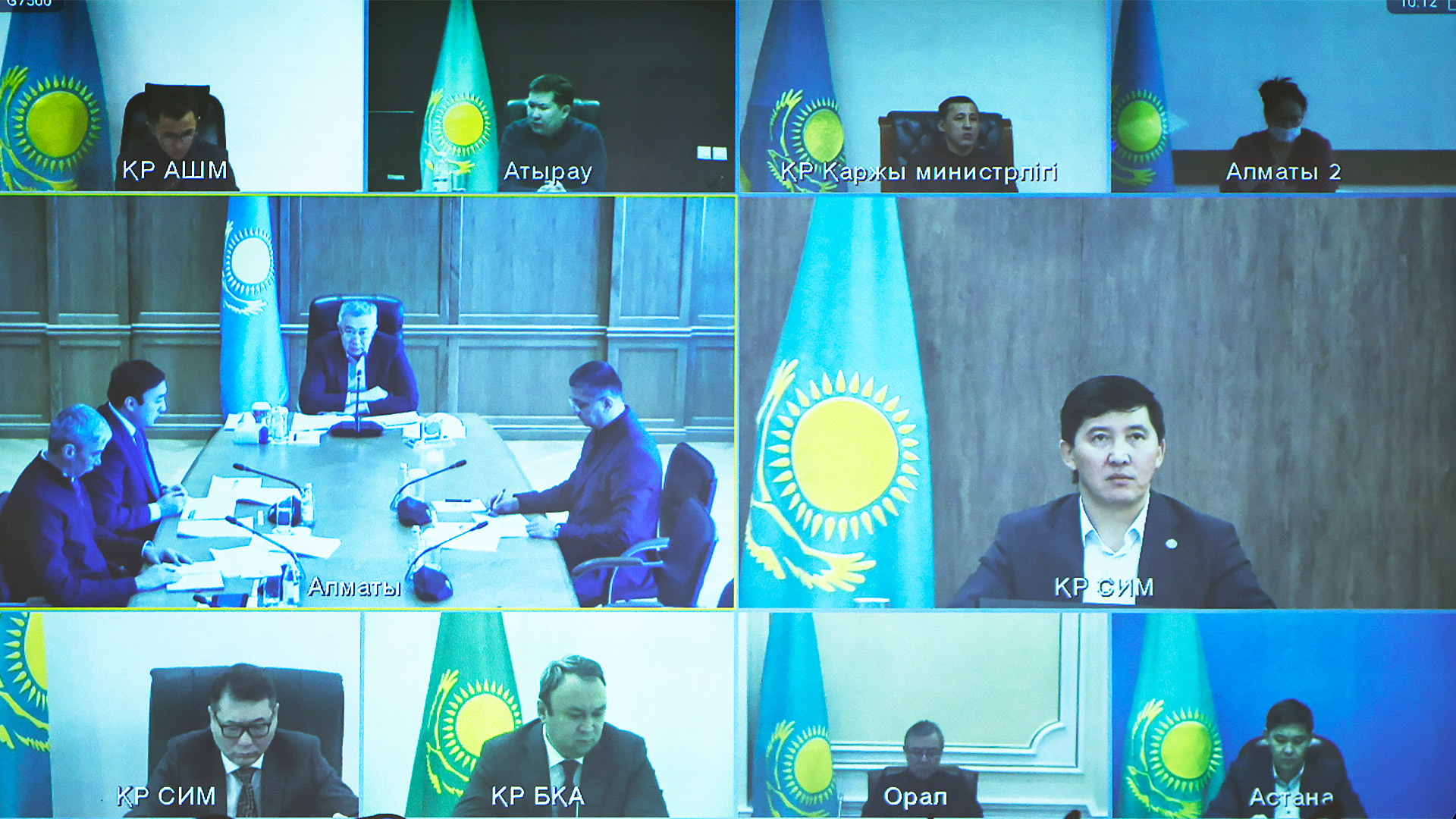10 December 2022, 19:37
 The Deputy Prime Minister, Minister of Trade and Integration Serik Zhumangarin chaired a meeting on 10 December 2022 to consider the main factors influencing the price situation for socially important food products and measures being taken to stabilise prices.
The Deputy Prime Minister, Minister of Trade and Integration Serik Zhumangarin chaired a meeting on 10 December 2022 to consider the main factors influencing the price situation for socially important food products and measures being taken to stabilise prices.
The main focus of the meeting was on the results of work of regional commissions on investigation of intermediary schemes. Over the past week, on the basis of analysis of electronic invoices, the Commerce Committee has revealed facts of sale of eggs through intermediaries with a mark-up exceeding the one set by law. In particular, in Karaganda region Kurma Agrofirma LLP sold eggs of the first category to companies in Karaganda and Zhambyl regions and Ulytau, which resold the products with a trade markup from 21 to 45%. Among the buyers of eggs with a 45% trade mark-up was the Karaganda bakery. All materials have been submitted to regional akimats for appropriate action.
Since the beginning of December, the Agency for Protection and Development of Competition has issued 14 notices to egg producers, indicating anticompetitive concerted actions. To date, poultry farms in Pavlodar, North-Kazakhstan, West-Kazakhstan regions and Astana have executed 7 notifications by reducing prices by 7-10%.
On signs of establishing monopoly high prices and price collusion 7 investigations were started in respect of poultry farms in Kostanay, Almaty, Zhambyl, Turkestan regions, and Shymkent city.
The interim results of the rating of akimats in terms of the effectiveness of price containment, compiled by the Ministry of Trade and Integration, were announced at the meeting. The work of akimats is assessed according to several indicators, including food inflation, weekly and annual rise in prices for socially important food products, achievement of the target indicator of the "revolving scheme", holding fairs, financing of sugar mills, work on revealing the facts of exceeding trade mark-ups. Akmola region and Ulytau ranked last in this ranking.
"The cases when goods go through middlemen through grey schemes with high mark-ups are the result of the lack of state control, the reality of how prices are formed today, when responsible local people do not put the work to stabilise food prices at the top of their agenda. The Commerce Committee should continue to analyse the current ESF for the entire group of socially important commodities. We need to stop the practice of violation of trade markups, for which all regional commissions, under the coordination of the Committee of Trade, should review their work algorithms, to examine and find the causes of the sharp rise in prices at meetings at least twice a week," Serik Zhumangarin said.
Particular attention at each meeting on stabilisation of prices for basic foodstuffs is paid to the process of allocating working capital to domestic sugar factories and the work being done to stabilise vegetable prices in the coming off-season. As we know, the main increase in the price index for socially important food products came during the period when sanctions were imposed on the Russian Federation, banning the export of sugar and grain from Russia in March 2022. Additional factors were the high ruble exchange rate and the off-season period, which gave rise to an increase in vegetable prices. Currently, Atyrau, Zhambyl, Pavlodar, West Kazakhstan, Karaganda, North Kazakhstan and Akmola oblasts have signed loan agreements with sugar refineries for a total of 7,664 bln tenge. Zhetysu, East Kazakhstan, Kostanay, Mangystau, Kyzylorda, and Almaty regions are in the process of signing.
Vice Minister of Agriculture Zhenis Osserbay explained the mechanism for the implementation of the first phase of the new approaches of the Stabilization Funds on the example of potatoes. The country's annual requirement for potatoes is estimated at 1.183m tonnes. Most of the growth in prices for this root crop occurs in April-June, when the old harvest is coming to an end and the new one is not yet available. For example, about 244,000 tonnes of potatoes are needed to cover the domestic market demand during that period. According to the data from the akimats, in the regions in this period about 100 thousand tons of potatoes, including forward contracts for 68.3 thousand tons, on "negotiable schemes" 32 thousand tons are contracted. The rest of the demand will be met through traditional supply channels, i.e. contracting business (through retail chains, wholesale suppliers). In May-June 2023, the domestic market demand will be met by contracting early potatoes from Turkestan and imports from southern countries.
Similar schemes will be implemented for all social horticultural products subject to the highest price increases during the off-season. The specific needs of each region for imports and early vegetables are being clarified.
Stay updated about the events of the Prime minister and the Government of Kazakhstan - subscribe to the official Telegram channel
Subscribe